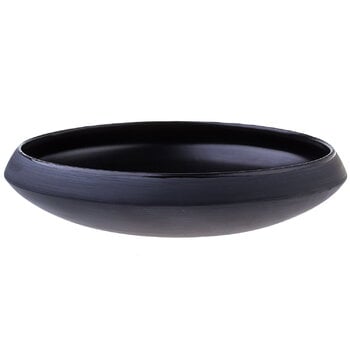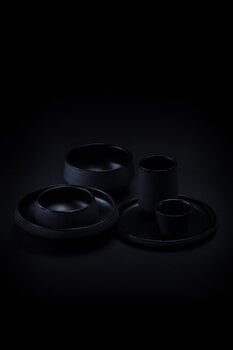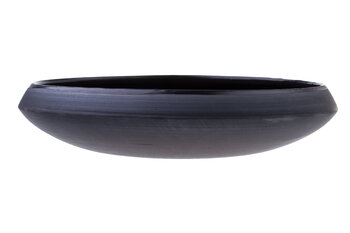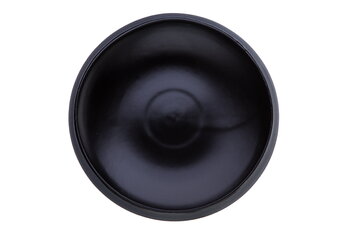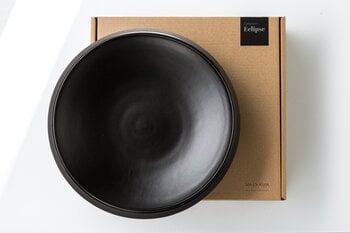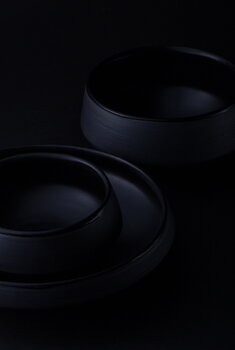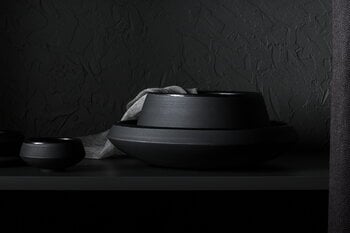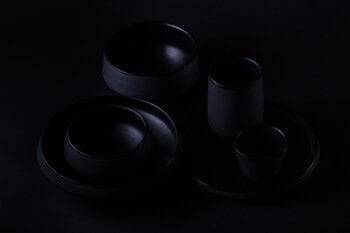The Eclipse centrepiece bowl is part of a tableware collection designed by Laima Grigone for the Latvian Vaidava. The ceramic Eclipse tableware is made using Terra Sigillata technique that was developed in ancient Rome, and the inside is finished with a lead-free glaze. Characterized by clean, smooth lines and deep black colour, the Eclipse range creates a stunning table setting either by itself or paired with tableware of other colours and shapes.
Handmade in Vaidava’s own pottery in Latvia. Packed in a recycled cardboard box.
